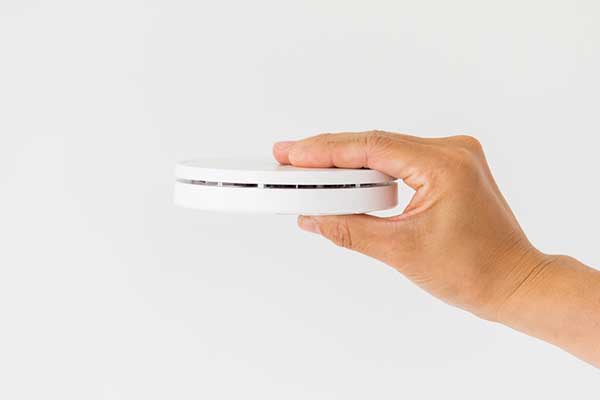Smoke alarm legislation for homes in Queensland is extremely confusing with different legislation and standards. If you’re unaware, the state government has introduced new laws that affect every homeowner, including landlords, in Queensland. In this article, Sparc Electrical has outlined the key facts you need to know and what you need to do to remain compliant with the new QLD smoke detector legislation. Not only will you avoid steep fines, you’ll also better protect your loved ones and property. Read on to find out more.

National Smoke Alarms Rules
Two important documents with nationwide implications are The National Construction Code (NCC) and the Australian Standard (AS 3786:2014) – Smoke Alarms using Scattered Light, Transmitted Light or Ionization.
AS/NZS 3786 controls the manufacturing of smoke alarms and referred to in the NCC which specifies the minimum requirements for compliant smoke alarms. The standard states mandatory smoke alarm functions and testing measures to ensure compliance. That said, the standard doesn’t refer to installation or in-service testing which are contained in the NCC and QLD government legislation.
Previously named the Building Code of Australia (BCA), the NCC has effect Australia-wide and is the basis for the QLD requirements. It defines Class 1a dwellings as a house or duplex and Class 2 as an apartment. Class 2 dwellings can use an alternative system like detectors to a fire indicator panel for the entire building. The NCC also states that Class 1b dwellings such as boarding house, budget accommodation, backpackers and communal short-term rentals have significantly different requirements including installation of emergency lighting.
Smoke Alarm Installation Laws
Now, smoke detectors need to be powered from the mains electricity supply. When there is more than one alarm, all of them must be interconnected. This means, when one alarm is triggered they all sound simultaneously.
The National Construction Code states smoke alarms must be installed as:
- On a level with a bedroom: In each corridor or hallway associated with a bedroom. If there is no hallway, smoke alarms must be installed in between the bedrooms and the rest of the building.
- On each other level not containing a bedroom: Along an access path, even if there’s only a carpark, bathroom or laundry.
- At least 300mm from the corner junction of the wall and ceiling
- Where smoke alarms are unable to be installed on the ceiling, the detector can be installed on a wall
Queensland Specific Smoke Alarm Legislation
Our state has setup the toughest laws around the country. Starting on January 1, 2017 every home constructed or substantially renovated has been required to install additional alarms in every bedroom which are interconnected. From January 1, 2022 the government required the retrofit of interconnected smoke alarms in every bedroom for all rental properties and properties sold. By January 1, 2027, every single property, including all owner occupied homes. Will be required to do the same. Any alarm retrofitted to an existing property can be powered by 10 year non-removable batteries or hard wired. Since 2017, only photoelectric alarms have been allowed.
Buy New Smoke Alarms Now

With the most stringent smoke alarm laws in the country, the government is sure to police this very closely. If you think your smoke detectors are not compliant, please contact the professional Master Electricians at Sparc Electrical today. We can quickly bring your property up to scratch at affordable prices. Protect your loved ones and property whilst complying with the new Queensland smoke alarm legislation. To book smoke alarm installation on the Brisbane northside or Sunshine Coast, please call our friendly team on 004 213 806 or email info@sparc-electrical.com.au.


 Your Local Reliable Electrician That You Can Trust
Your Local Reliable Electrician That You Can Trust 